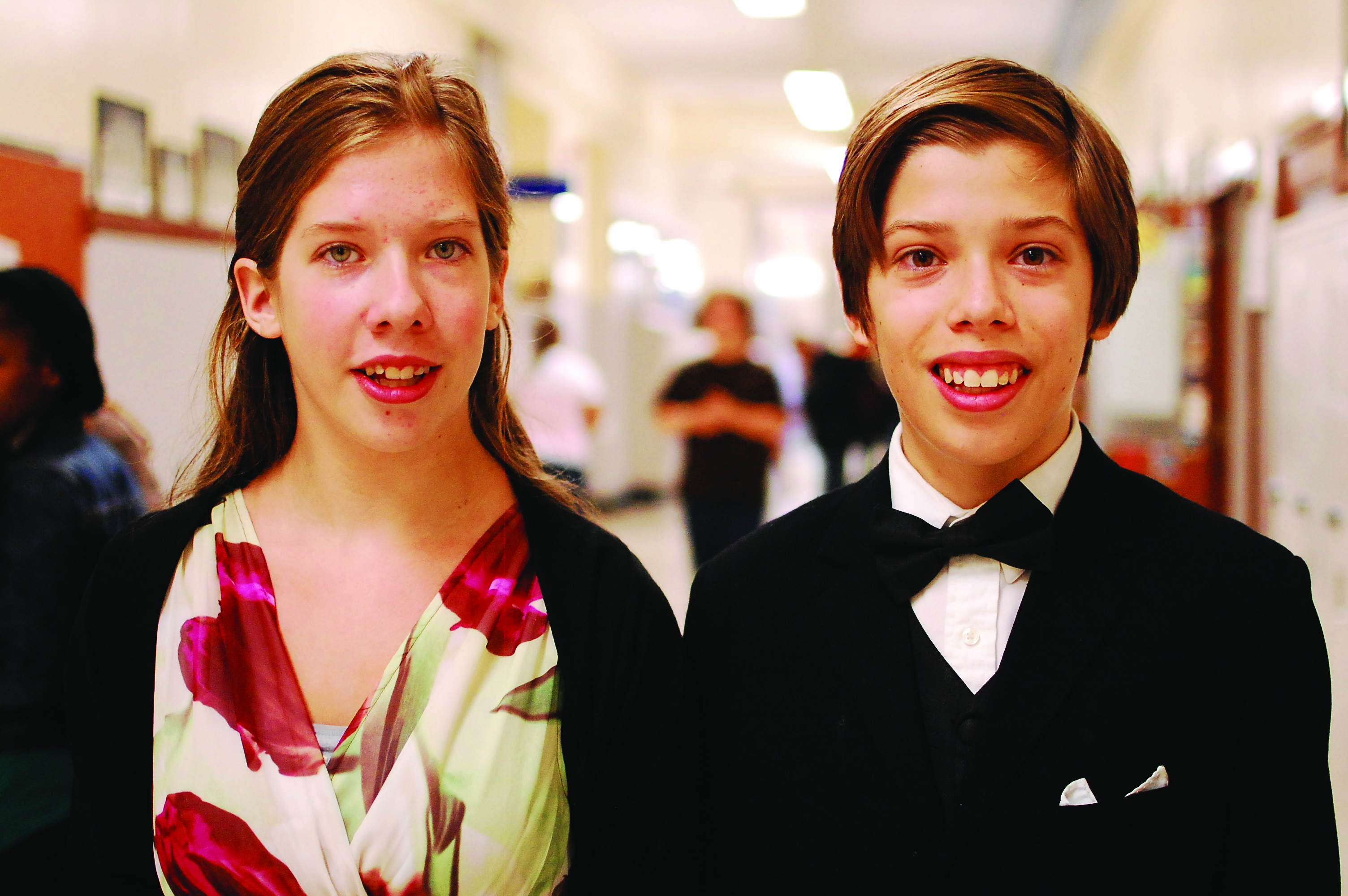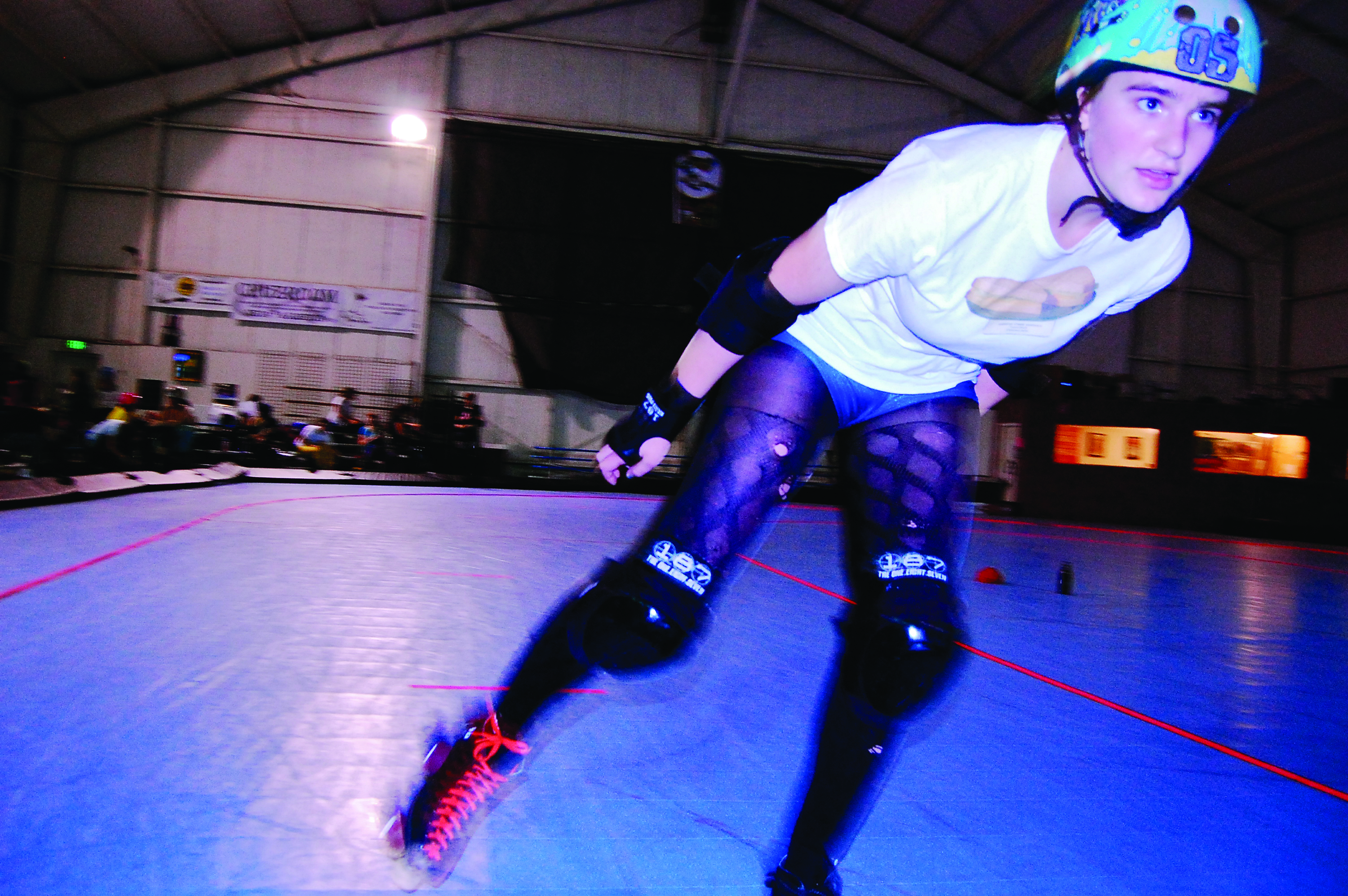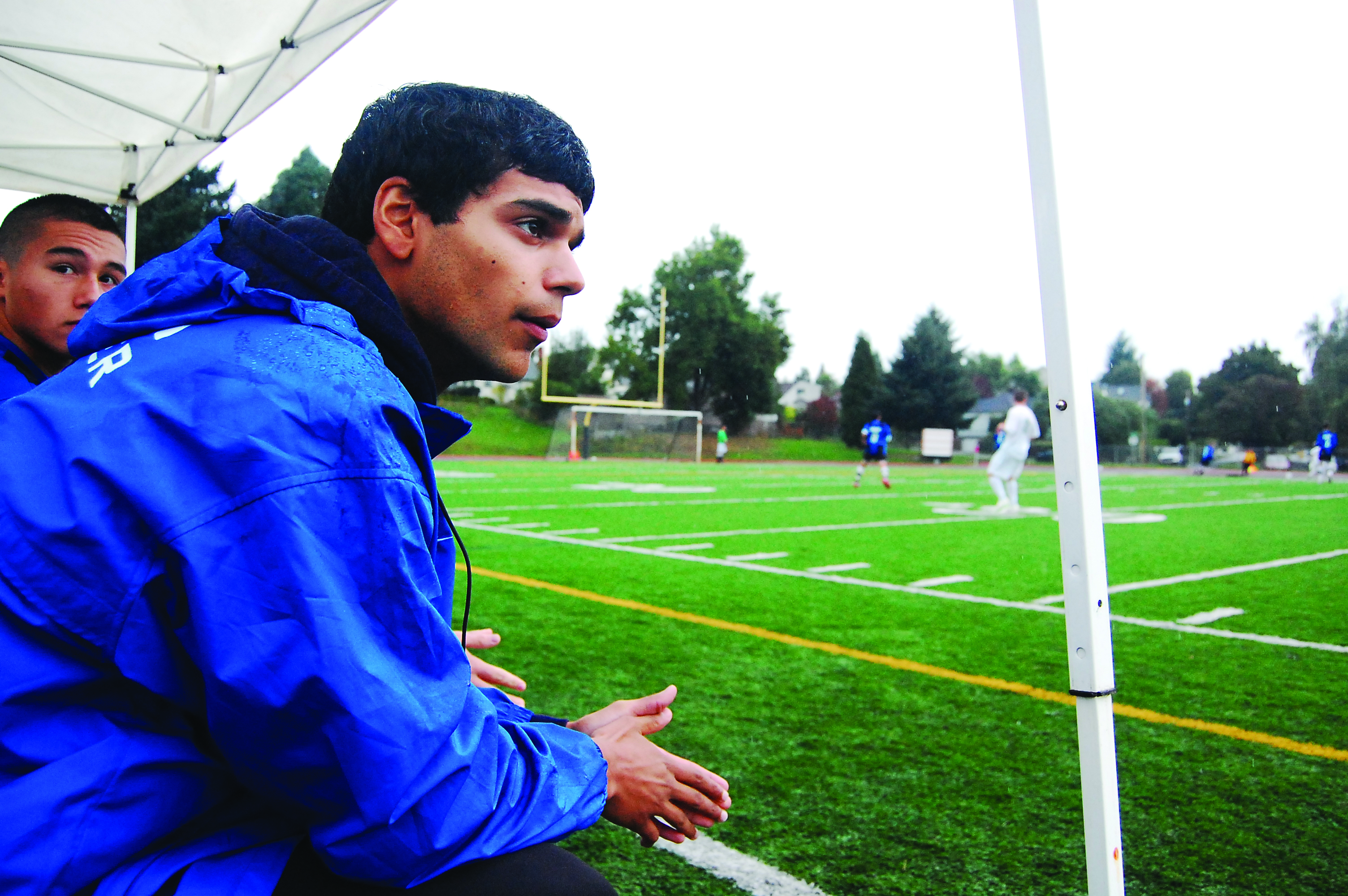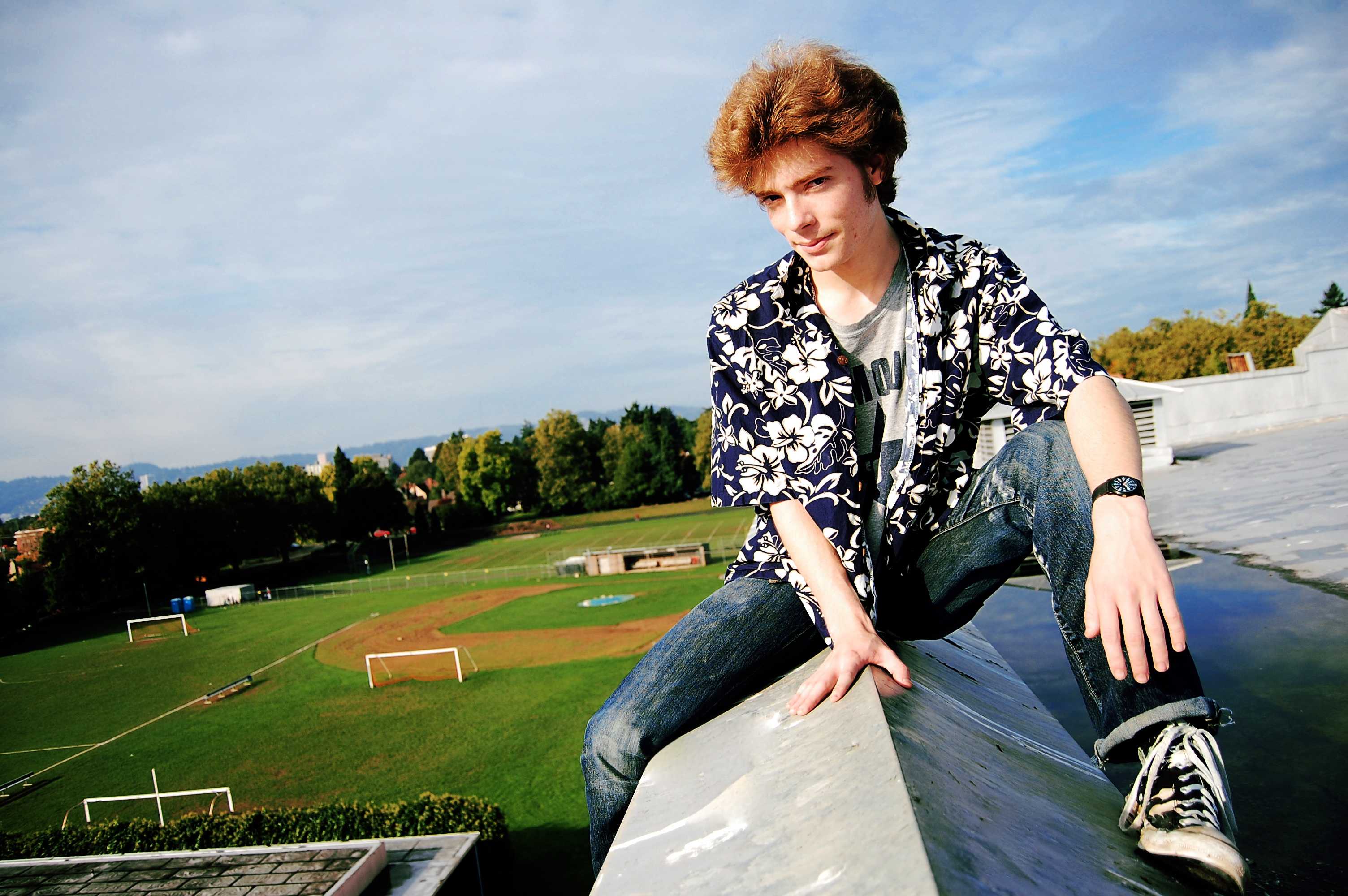
Walk down the halls of Grant High School and you won’t miss the twins Max and Michelle Bates.
The sophomores have bubbly personalities, an affinity for formal wear and an uncanny ability to make cameos in about every club Grant has to offer.
What people don’t know is that the Bates twins are two of the 169 students who are involved with Grant’s special education program. It includes students who have developmental disabilities, ADHD, autism, hearing and visual impairments, or physical disabilities.
Historically, these students have been subject to stigma and bullying. But Grant’s psychologist David Dugo says the program is trying “to bring some humanity and caring to the process of problem solving.” These experts try hard to avoid the “dry and depersonalizing data that alienates kids,” he says.
Max and Michelle Bates struggle with what is commonly called a learning disability. Their mother, Ellen Bates, prefers the term “learning difference.” Both Max and Michelle struggle with reading and writing, and Michelle has some trouble with speech.
Ellen Bates—A self-described “protective mother bear”—is a fierce defender of her children and others who have special needs. She says the story of her children is a story of overcoming stigma. She doesn’t like her children being singled out because of their learning differences.
“They’re not wearing their difference on their sleeves,” she says. “They’re not looking for pity. They work really hard to fit in…If you’re not like everyone else, people tend to exclude you.”
The journey to fit has been a long one for the twins. They discovered they learned differently when a first-grade teacher brought it to Ellen Bates’ attention. When their parents and educators discovered that the twins had a deficit, it was necessary to do a “catch-up,” which means they had to do twice as much work. The district provided licensed professionals to help with things that were difficult.
The twins also were offered the help of assistive technology in the form of laptops, which allowed them to write faster.
For Michelle Bates, the technology didn’t work as well. “I didn’t like technology when I was younger,” she explains, though her brother still uses it in his work.
The twins say they don’t remember being bullied in elementary school even though they took different classes.
Things changed when they went to Beaumont Middle School.
Michelle Bates counts seventh grade as her hardest year, saying that having to constantly leave class for speech therapy meant that it was difficult to keep up with what was going on in her other classes. She remembers how nobody wanted to be her partner for anything because she would often miss the second half of any activity.
She also faced the wrath of a group of girl bullies. “Every time I would sit with them, they would tease me,” Michelle Bates recalls. “They spent their free time watching everything I did and teasing me about it.”
Both Ellen and Michelle Bates say that Beaumont’s somewhat small size had something to do with it. “If you have more of a focal area, then there’s more stigma,” Ellen Bates says.
Max took the high road and said “Bah, humbug,” learning to ignore the bullies.
High school has been better for both kids, Ellen Bates says. The large size of the school has lessened the stigma of their learning difference.
The summer before his freshman year, Max Bates watched the movie “Footloose,” in which the main character wears a suit to school on his first day. He decided to give it a try on his first day and says that it made him feel “invincible.”
Now, it’s rare to see him without his trademark suit, bowtie, cummerbund, pocket watch, cuff links and briefcase.
He’s a singer in the Harmonaires/Choralaires and likes to perform on stage. When he’s not singing or doing schoolwork, Max Bates sells bread machines on eBay, buying them for cheap at garage sales, cleaning them up and selling them sometimes for a 300 percent profit.
He likes to keep busy because “if you sit around too much, you get bored.”
Michelle Bates prefers drawing and painting, and has been one of the leaders of the Art Refugees club since last spring. The club is all about people coming together and doing art, she says.
Although they feel they have been generally accepted in high school, Max Bates says sometimes he encounters people who buy into the stigma about students with learning differences.
He’s seen people who “put up a brick wall when they realize I do [have them]. They think, ‘You’re different, so you’re evil.’”
But Max Bates says he doesn’t let it get to him. “Everybody has something different about them,” he says.
His sister agrees. “Nobody can be perfect,” she says. “That’s unhuman.”




